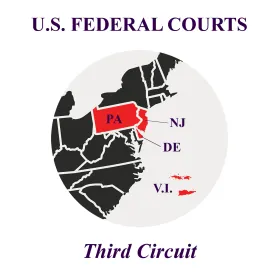In a rebuke of the Department of Justice, the Third Circuit recently overturned money laundering conspiracy convictions for a reverse distributor pharmaceutical company, Devos Ltd., and two of its former executives, CEO Dean Volkes and CFO Donna Fallon. The Third Circuit’s opinion, United States v. Fallon, affirmed other convictions against the company and individuals but ordered a resentencing and a recalculation of the sums subject to forfeiture.
The prosecution arose from allegations that the company and the two former executives engaged in a large-scale scheme to defraud clients, including the U.S. Government, out of nearly $100 million. The money laundering charge, specifically, was one of concealment—that the defendants conspired to engage in financial transactions designed to conceal the nature or source of the proceeds from the fraud schemes, 18 U.S.C. § 1956(a)(1)(B)(i). The Third Circuit concluded that the prosecution’s evidence was insufficient to meet the elements of a concealment money laundering conspiracy.
In so holding, the Third Circuit focused on the “intent to conceal” element, noting “[t]here is a fine line between the concealment inherent in fraud offenses and concealment money laundering.” An intent to conceal illicit proceeds must be separate and apart from the intent to commit the underlying crime and benefit from it. The Government must prove more to secure a concealment money laundering conviction than it must to secure the underlying fraud conviction.
The Government argued that the defendants concealed their activities by commingling funds from the illegal activities with legitimate income, and then transferring those commingled funds to various company bank accounts and personal accounts. The Third Circuit was reluctant to read the concealment statute so broadly as to merge money laundering concealment into the underlying crimes that generated the illicit proceeds.
The Third Circuit identified “two good reasons” to prevent the line between the crimes from being blurred. First, the addition of a money laundering conviction could result in a substantial increase in sentence. Second, a money laundering conviction could also result in significant financial penalties, including the forfeiture of an entire commingled account (including the legitimate income), because the illicit proceeds tainted the legitimate income, and that account facilitated the money laundering by concealing the illicit proceeds.
The Court noted the practical effects of adhering to the Government’s expansive theory of money laundering concealment. “At best, it could subject companies to enormous forfeiture obligations based on relatively minor fraud schemes. At worst, it could motivate prosecutors to bring money laundering charges in almost every fraud case.”
The precedential opinion on money laundering will impact the way DOJ handles fraud cases and money laundering charges. Consequently, a money laundering charge should not be automatic every time a fraud is alleged or when a company places legal and illegal funds into the same account.



 />i
/>i
